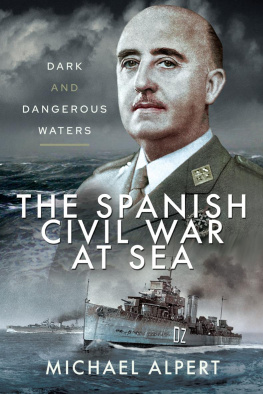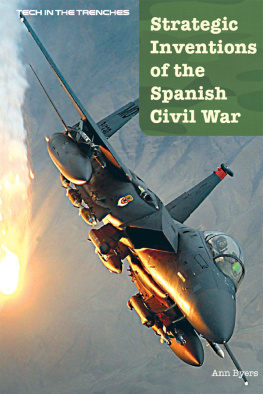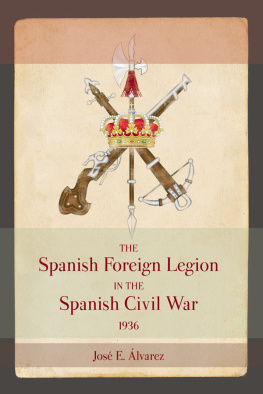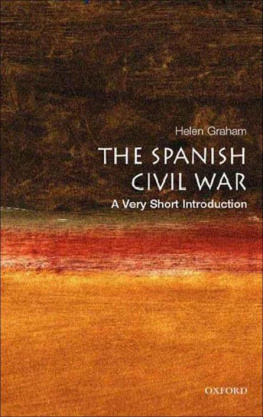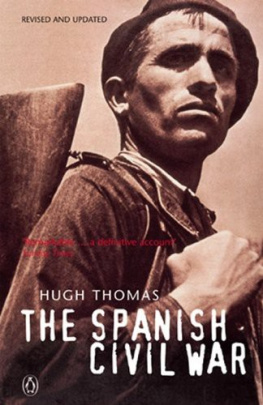First published in Great Britain in 2021 by
Pen & Sword Military
An imprint of
Pen & Sword Books Ltd
Yorkshire Philadelphia
Copyright Michael Alpert 2021
ISBN 978 1 52676 436 2
eISBN 978 1 52676 437 9
Mobi ISBN 978 1 52676 437 9
The right of Michael Alpert to be identified as Author of this work has been asserted by him in accordance with the Copyright, Designs and Patents Act 1988.
A CIP catalogue record for this book is available from the British Library.
All rights reserved. No part of this book may be reproduced or transmitted in any form or by any means, electronic or mechanical including photocopying, recording or by any information storage and retrieval system, without permission from the Publisher in writing.
Pen & Sword Books Limited incorporates the imprints of Atlas, Archaeology, Aviation, Discovery, Family History, Fiction, History, Maritime, Military, Military Classics, Politics, Select, Transport, True Crime, Air World, Frontline Publishing, Leo Cooper, Remember When, Seaforth Publishing, The Praetorian Press, Wharncliffe Local History, Wharncliffe Transport, Wharncliffe True Crime and White Owl.
For a complete list of Pen & Sword titles please contact
PEN & SWORD BOOKS LIMITED
47 Church Street, Barnsley, South Yorkshire, S70 2AS, England
E-mail:
Website: www.pen-and-sword.co.uk
Or
PEN AND SWORD BOOKS
1950 Lawrence Rd, Havertown, PA 19083, USA
E-mail:
Website: www.penandswordbooks.com
Dedicated in gratitude to the memory of Hugh Thomas (Lord Thomas of Swynnerton), pioneer British historian of the Spanish Civil War .
Preface
T he Spanish Civil War of 19361939 has been of permanent interest since Hugh Thomas published his seminal The Spanish Civil War in 1961. These multi-volume works, though somewhat indigestible, are very useful because of their immense detail and direct quotation of original and documentary sources. Apart from Admiral James Cables book specifically on the 1937 blockade of Bilbao, the only work written in English, though published in a poorly edited Spanish translation, is Admiral Peter Grettons El factor olvidado: la Marina Britnica y la Guerra Civil Espaola (Madrid, San Martn, 1984).
However, the naval aspects of the Spanish Civil War were of more international and specifically British importance than the land war, given the significance and size of the Royal Navy and the British Merchant Marine at the time. Almost all the war material sent to Spain, together with most of the other essential supplies of a country at war, arrived by sea. This was so whether cargoes came from Nazi Germany and Fascist Italy, which massively aided the Insurgents under General Franco, or from the Soviet Union or wherever else the Spanish Republic which Franco was striving to overthrow could buy arms to bring through the Mediterranean, over the Atlantic, or through the English Channel and the Bay of Biscay. Many ships were transferred to the British flag in order to enjoy the protection of the Royal Navy. While the increase in the size of the British Merchant Marine was desirable, much opinion in Parliament and the press questioned whether ships which had nothing British about them save the Red Ensign should be able to call on Royal Navy protection when trying to break a Spanish Insurgent blockade for the sake of the profits to be made.
As for other countries, Italy saw the Spanish war as a way to challenge the Royal Navys dominance in the Western Mediterranean, and to wrest control from France of the sea route from North Africa to Europe. For the Nazi regime, helping Franco to win would weaken France but would also offer the chance to stake Germanys right to be a respected naval power.
Because of these rivalries, the Spanish Civil War was seen from London and Paris as potentially liable to provoke a major international war if foreign supporters competed to supply one or other side with armaments. At the same time the Spanish war offered an opportunity to organise a simulacrum of international cooperation with a view to avoiding an international conflict. This was reflected in the pan-European Non-Intervention Agreement of August, 1936, and the International Naval Patrol of April 1937.
To a great extent, the British and French aim of corralling the Spanish Civil War so that it did not directly cause an international conflict was achieved. However, it is arguable that the dictators learned that because their interference in Spain, where they had no justified national interests, was tolerated, the democracies would allow them to extend their aggressive behaviour.
International reaction to the Spanish war took the form of keeping the sea safe for commercial traffic and at the same time enforcing or rather pretending to enforce the Non-Intervention Agreement not to allow the shipment of arms to Spain. Thus questions of the legal status of the belligerents, of the identity of ships, of the right to blockade and interfere with legitimate traffic and of the extent of territorial waters became the frequent subject of Question Time in the House of Commons and regular discussion in the press. Royal Navy warships provided information to the Admiralty and thence the British government, while a future Director of Intelligence in the Far East, Lieutenant Commander Alan Hillgarth, became the Admiraltys eyes and ears in what is today the holiday resort of Palma on Majorca but which became a major Insurgent naval base between 1936 and 1939.
Today a majority of the readers of this book will have visited Spain, and will recognise the places it mentions, such as the Mlaga and Catalan coasts (the Costa del Sol and the Costa Brava) and the Balearic Islands of Majorca, Minorca and Ibiza (where Soviet aircraft bombed a German warship in error), but few of their forbears would have visited Spain before the Spanish Civil War. Most peoples knowledge of Spain in the nineteen-thirties was limited to the Inquisition, the opera Carmen and of course the Spanish Armada. In many British peoples eyes, the Spanish Civil War was being fought in a remote, exotic land between two groups of Dagoes, one of which, the Republicans, were seen as at least trying to modernise and democratise their country, while the Francoists were admired only by those who referred to them as defenders of Western civilisation against Bolshevism. Officers of the Royal Navy, reflecting their social class, referred in their messages about Spain to Reds, while German sources often speak of the Whites. Such terms harked back to the Russian Revolution, which was a living memory for people over their mid-thirties, many of whom feared Communism and social revolution more than fascism and Nazism.
In this book readers interested in naval questions will read about a war which saw at its beginning a mutiny which was considered, at least by Royal Navy officers, as one more of the mutinies of the early twentieth century, like those of the Russian battleship Potemkin in 1905, the German Navy at Kiel in 1918, the French navy in the Black Sea in 1919, and the refusal of duties by Royal Navy crews at Invergordon in 1931. Yet, paradoxically, the mutiny in the Spanish navy in July 1936 was one in which the mutineers asked their government for orders after having deposed and often murdered officers who were rebelling against that very government.



